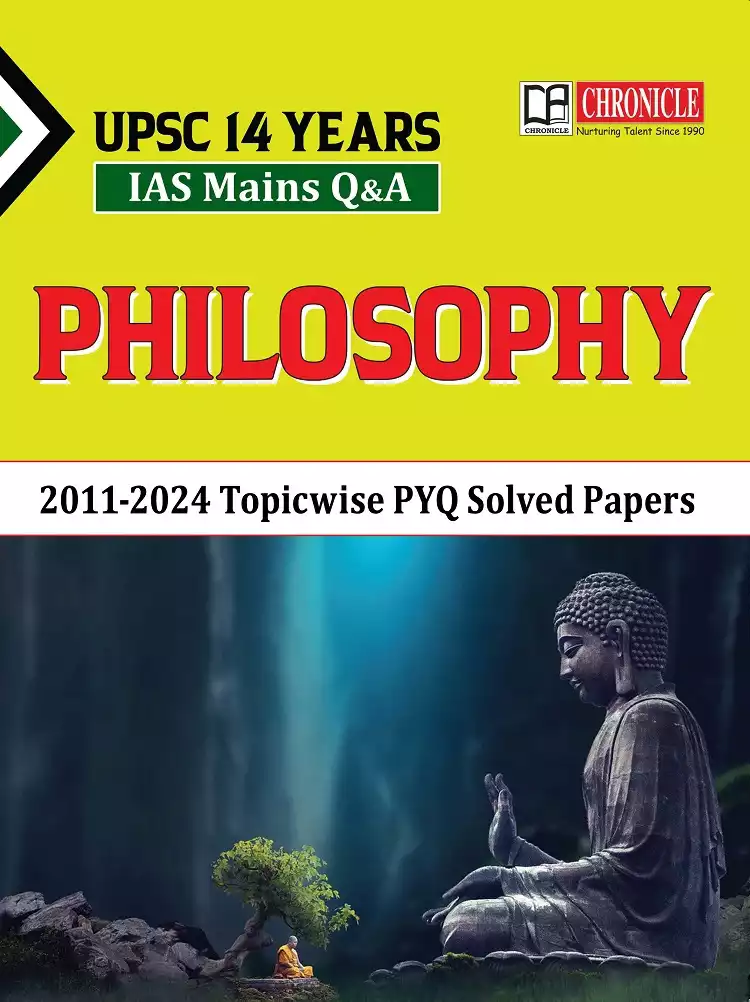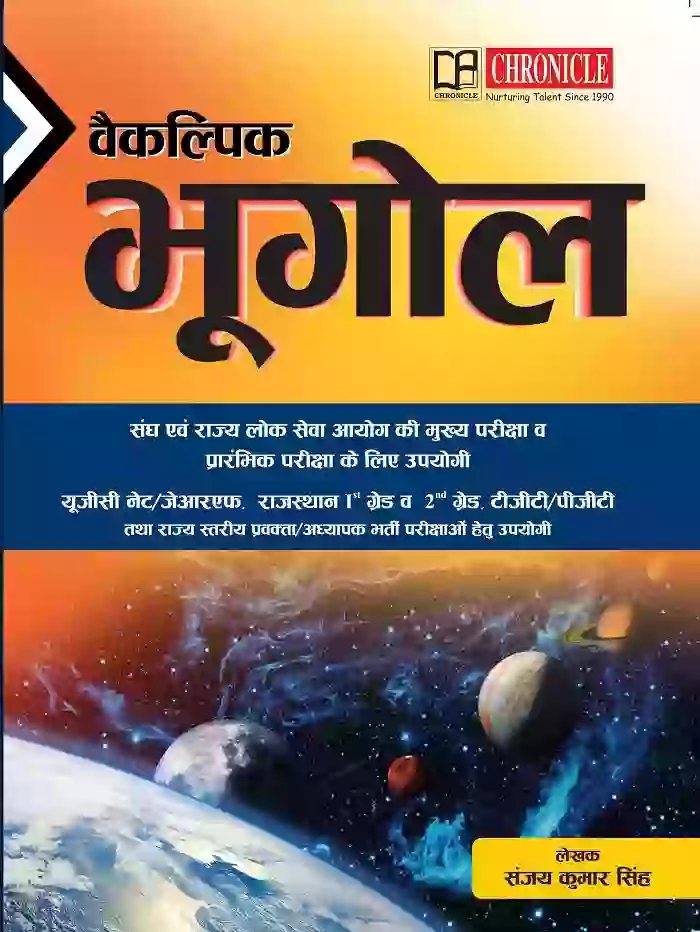The LEXICON For Ethics, Integrity And Aptitude 2024
“The Lexicon For Ethics, Integrity & Aptitude” is a comprehensive compendium meticulously crafted for students aspiring to excel in the UPSC Civil Services Examination, specifically addressing the syllabus of General Studies Paper IV.
“The Lexicon for Ethics, Integrity & Aptitude” serves as an invaluable companion in your journey towards success in the UPSC Civil Services Examination. The book empowers you with the knowledge, aptitude, and ethical acumen required in navigating the challenges and emerging as a responsible and effective civil servant.
Why is this book special for Ethics, Integrity & Aptitude?
- The book decodes the key terms of the syllabus for easier understanding of the discipline by the students.
- As the dynamic landscape of the UPSC examination evolves, so does our commitment to provide students with an updated and comprehensive resource that aligns seamlessly with the changing patterns of the examination.
Why No Match to “The LEXICON” since 10 Years?
- The GS Paper IV demands more than just an understanding of ethics paper; it requires individuals to align their behaviour with ethical principles in their daily lives. To meet this expectation, the book has been revised and reconceptualised since its inception by Chronicle Editorial Team, incorporating their rich experience and expertise.
- Their valuable insights gained through years of research have transformed this edition into a comprehensive and holistic solution for students, providing them with a one-stop reference for mastering the intricacies of GS Paper IV.
Why IAS/PCS toppers trust “The Lexicon” since 2014 for preparation of GS Paper IV?
- Originally designed to acquaint students with the academic discourse of GS Paper IV, “The Lexicon” has undergone substantial revisions and enrichments in its dimensions and depth over the past years. “The Lexicon” has been progressively adapting itself to cater to the evolving demands of the UPSC examination. Since 2014, 90% of the questions asked in CSE Mains Exam are from “The Lexicon”.
How “The Lexicon” Tenth Edition (2024) is more useful for future IAS aspirants?
- In this tenth edition, we continue our journey of refinement, incorporating subject matter that reflects the latest developments and emerging trends in the fields of ethics, public life, society, and governance.
- Given the dynamism of the syllabus and the agile demand of the examination, new topics and dimensions like Moral Intuition, Ethical Altruism, Principle of Non- Refoulement, etc. have been added in the present edition.
- The book now addresses not only the core principles of ethics but also explores new and pertinent topics such as constitutional and legal issues, along with contemporary ethical issues like Moonlighting, Homosexual Marriage Rights, Begging, and Prostitution, etc.
How “The Lexicon” helps in dealing with case studies?
- Recognising the ever-growing complexities of the examination, this edition delves deeper into the psychology of dealing with case studies. It aims to ensure that students not only comprehend the ethical principles but also develop the psychological aptitude necessary for effective decision-making, aligning them with the qualities of a successful civil servant.
- The tenth edition not only deals with the approach to solve the case studies but also ensures that students get a glimpse into concepts of GS Paper IV while addressing the case studies. This will help develop the required aptitude and orientation as per the demand of the examination.
How to Use “The Lexicon” for General Studies Paper IV?
- “The Lexicon For Ethics, Integrity & Aptitude” is a compendium covering all dimensions of ethics and related concepts.
- It is meticulously crafted for students aspiring to excel in the UPSC Civil Services Examination and other State PSC Examinations, specifically addressing the syllabus of General Studies Paper IV and other concepts.
- This book will enrich the basic concepts of ethics as well as its application in real life situations; hence it requires a systematic study. Outlined below is a pedagogic approach which you can follow to develop clarity of concepts and build a profound foundation.
First Stage of Preparation as a Beginner
- To develop initial clarity and get acquainted with the epistemology of the book, read the syllabus and the decoded terms of the syllabus given at the beginning of the book.
- The syllabus will make you familiar with scope and demand of the paper and the decoded terms associated with it will provide a clear understanding.
Stage 2
- Post familiarity with the syllabus and decoded key terms, it is expected of you to give a first reading of the book.
- During the first reading the reader must focus on basic concepts and their application in real life environment.
- The discipline demands a basic understanding by the students; hence try to differentiate between associated concepts and related topics.
- To be more familiar with the topics, it requires a second reading which would provide deeper understanding and clarity.
- The reader should inculcate concepts and memorise keywords that will make them more comfortable with the subject.
Stage 3
- Try to develop a comprehensive and analytical framework of the discipline, specifically focusing on the applied aspects.
- You can develop maximum efficacy by reading the case studies and understanding the interlinkages of the different concepts.
- Solving the case studies demands diversity of dimensions and application of principles.
- Hence the case study approach given at the beginning can help develop the psychology and aptitude, building a comprehensive understanding of the topics.
Stage 4
- Once you are done with all these steps, try to analyse your understanding while going through previous year questions.
- It will provide deeper insights and mirror your acquired aptitude and subsequently it can be further enhanced by repeated and periodic revisions of the book.
Best wishes for your preparation and the journey ahead, and simultaneously we invite your feedback/suggestions at editor@chronicleindia.in
Specifications |
|
|---|---|
| Availability | In-Stock |
| Language | English |
| Product Type | Print Edition |
| Edition | 2024 |
| Book Code | 340 |
| Shipment | Free |
| No. of Pages | 592 |
No Match to LEXICON Since 10 Years
Success Story
- Trusted by over 90% of IAS/PCS Aspirants since 2014
- 99% of Questions from Paper-IV Could be Answered from this Book
- All the Topics/Questions Asked in Various State PCS Exams have also been Covered in this Book
Questions asked in CSE Mains 2023 from Lexicon
2023 Edition
Section- A
- Question No. 1. (a) From Page No: 451 to 451
- Question No. 1. (b) From Page No: 434 & 435
- Question No. 2. (a) From Page No: 337
- Question No. 2. (b) From Page No: 323
- Question No. 4. (a) From Page No: 169 to 170
- Question No. 5. (a) From Page No: 262
- Question No. 5. (b) From Page No: 294
- Question No. 6. (a) From Page No: 201
- Question No. 6. (b) From Page No: 426 to 428
Section- B
The section- B of GS Paper-IV, 2023 had total of six case studies. The case studies asked required the understanding and application of ethical concepts from perspective of different professions. These case studies can be easily solved with a deep study of Lexicon.
2022 Edition
- Question No. 1. (b) From Page No: 164-166, 179, 181
- Question No. 2. (a) From Page No: 161
- Question No. 3. (a) From Page No: 64
- Question No. 3. (b) From Page No: 129
- Question No. 4. (a) From Page No: 339-340
- Question No. 5. (a) From Page No: 75
- Question No. 5. (b) From Page No: 305-309, 453-461, 640, 372-374
- Question No. 6. (a) From Page No: 582
- Question No. 6. (b) From Page No: 597-599, 586, 594
Questions asked in CSE Mains from successive editions of Lexicon
2021 Edition
- QuestionNo.1.(a) From Page No: 147-162
- Question No.1. (b) From Page No: 147-162
- Question No.2.(a) From Page No: 509
- Question No 2. (b) From Page No: 289
- Question No. 4.(a) From Page No: 126-129, 142
- Question No. 4.(b) From Page No: 165-205
- Question No. 5.(a) From Page No: 520
- Question No. 5.(b) From Page No: 157
- Question No. 6.(a) From Page No: 405
- Question No. 6.(b) From Page No: 152
2020 Edition
- QuestionNo.1.(a) From Page No: 328
- Question No.1. (b) From Page No: 502
- Question No.2.(b) From Page No: 167 and 188
- Question No 3. (a) From Page No: 239 and 539
- Question No. 3 (b) From Page No: 328
- Question No 4. (a) From Page No: 304
- Question No. 4(b) From Page No: 132
- Question No. 5. (a) From Page No: 256 and 301
- Question No. 5(b) From Page No: 327
2019 Edition
- Question No.1 (a) From Page no. 355
- Question No.1 (b) From Page no. 197
- Question No.2 (b) From Page no. 408
- Question No.4 (a) From Page no. 402
- Question No.4 (b) From Page no. 393
- Question No.5 (a) From Page no. 378
- Question No.5 (b) From Page no. 220
- Question No.6.(a) From Page no. 487
- Question No.6.(b) From Page no. 482
- Question No.6.(c) From Page No. 485
Note: The Case Study questions asked are similar to case study patterns given in the Lexicon.





 Topic-Wise PYQ Solved Papers.webp)





